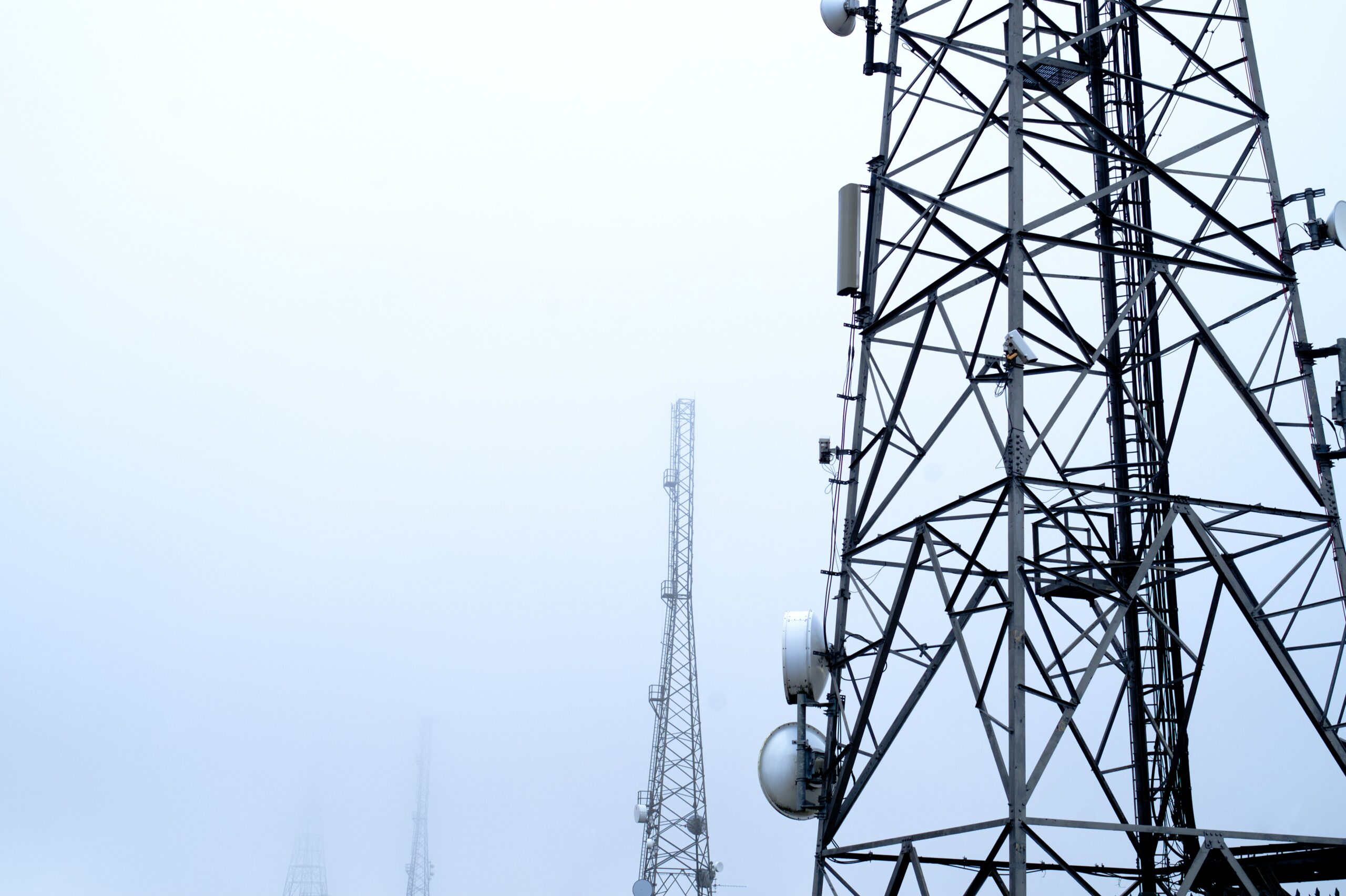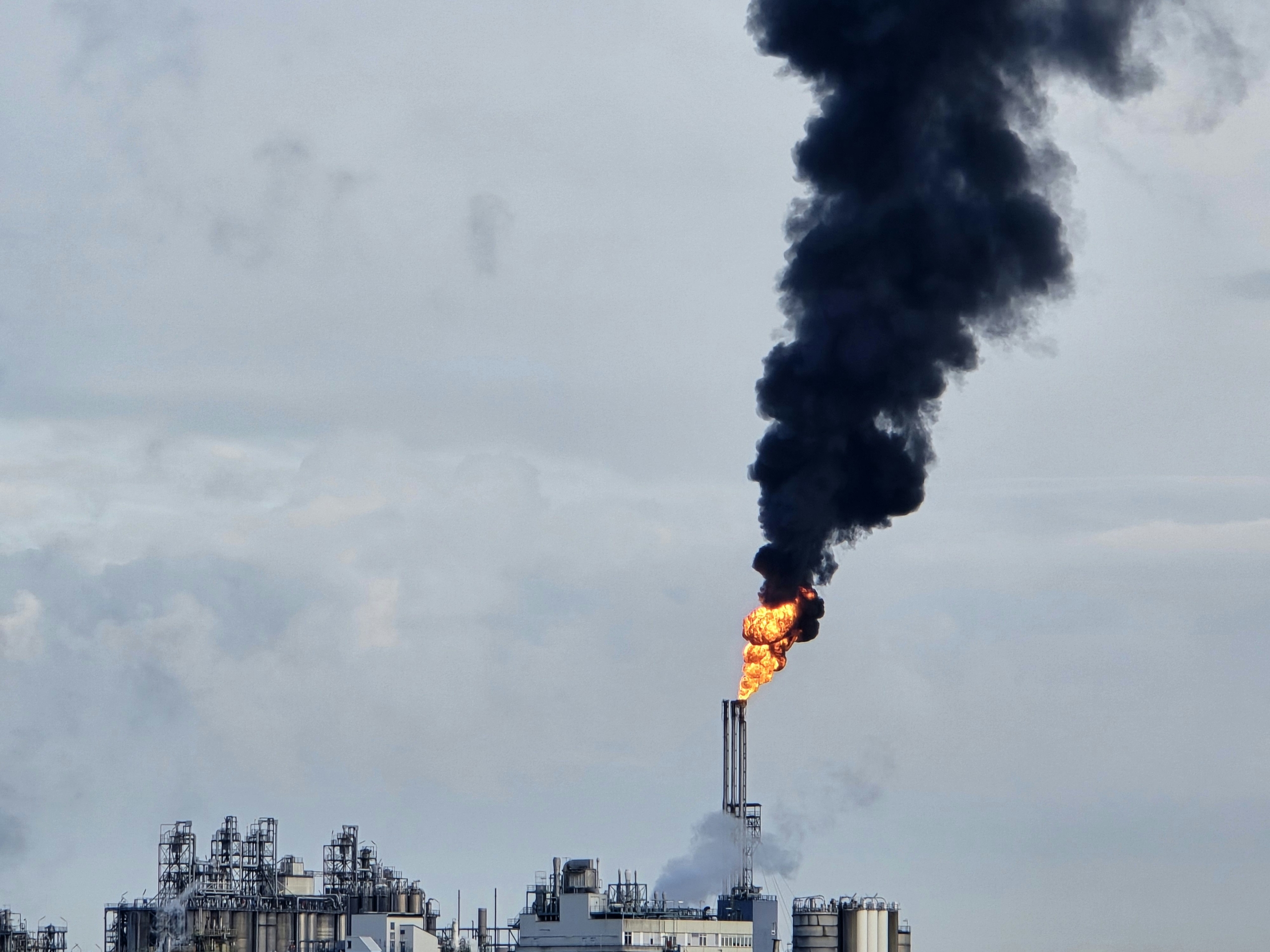We are excited to announce that Brink is now part of Africa Practice. Learn more
Carbon emissions in the telecommunications industry

As the development of the digital economy continues to drive data demand and internet usage, the telecommunications and ICT sectors are likely to face growing scrutiny of their environmental impact. In 2021, Boston Consulting Group (BCG) estimated that the ICT sector contributed 3-4% of global CO2 emissions, with the telecommunications sector accounting for approximately half of that. Emissions are projected to increase significantly unless measures are adopted to decarbonise the industry. By 2040, BCG estimates that the ICT sector could account for 14% of global CO2 emissions.
Collaboration between network operators, industry associations and carbon accounting organisations is key to enabling businesses to understand their emissions footprint and adopt appropriate reduction strategies and targets. For instance, the Global Enabling Sustainability Initiative (GeSI), industry body GSMA, the International Telecommunication Union (ITU), and the Science Based Targets Initiative (SBTi) have worked with mobile operators to set individual emissions targets aligned with the 1.5°C goal set under the Paris Agreement. In addition, some operators have begun reporting their emissions using frameworks developed by the Task Force on Climate-Related Financial Disclosures (TCFD).
However, these initiatives have yet to be adopted by the entire industry, and more will need to be done to ensure that operators have the right strategies in place. In 2022, the GSMA reported that 50 operators representing 63% of the industry by revenue and 44% by connections had committed to rapidly cutting their emissions over the next decade, and that operators representing 38% of revenue and 29% of connections had committed to net zero targets by 2050 or earlier.
Continental efforts
In Africa, several multinational telecommunications companies have already adopted emissions reduction strategies and targets. For instance:
-
- MTN Group has committed to being net-zero across its operations by 2040. The group has established a dedicated committee to oversee progress towards targets and is prioritising increasing access to and usage of renewable electricity, including through the deployment of alternative energy sites (solar, wind, fuel cell, hybrid), as well as improving the energy efficiency of its network and other infrastructures. In addition to a group-wide strategy, MTN subsidiaries in South Africa, Nigeria, Ghana, Cameroon and Sudan are developing their own carbon emission reduction strategies.
-
- Vodacom’s parent company Vodafone has committed to a net-zero target for 2040. The group intends to source 100% of its energy from renewables by 2025 and raised USD 840 million in 2019 through a green bond issue to fund its programme.
-
- Orange has also committed to being net-zero by 2040 across its operations in Africa, the Middle East and Europe. The group intends to source 50% of its electricity from renewables by 2025. It has been making progress on this front in a number of its African markets, with approximately 50% of its electricity needs in Guinea, Sierra Leone, Madagascar and Liberia covered by renewable sources.
-
- Airtel Africa in turn has committed to a net zero target by 2050. The group, which operates in 14 markets in sub-Saharan Africa, is in the process of evaluating 40 initiatives to reduce its scope 1 (direct emissions) and scope 2 (indirect emissions).
Opportunities and outlook
Operators have significant opportunities to reduce their direct and indirect emissions by investing in renewable energy production and improving the energy efficiency of their infrastructure, but are more limited in their ability to reduce their emissions from indirectly controlled sources along their value chains (Scope 3 emissions covering suppliers and consumers). In this regard, telecommunications tower companies represent a particular challenge, given that diesel-powered towers are one of the sector’s most important sources of emissions.
IHS Towers, which holds the largest tower portfolio on the continent and services MTN, Airtel Africa and Orange across numerous markets, has developed a dedicated carbon reduction roadmap named Project Green. This initiative focuses on the deployment of hybrid sites that combine diesel with grid connection and solar and battery solutions, which IHS estimates will require the company to commit USD 214 million of capex over the period 2022-2024.
The use of diesel remains critical in markets where grid infrastructure does not provide reliable and sufficient energy, and will be an ongoing challenge for the industry due to limitations in the deployment of renewable onsite solutions. For example, in 2021-2022 Vodacom reported an increase in its scope 1 and 2 emissions, caused by greater reliance on diesel as a result of load shedding in South Africa, as well as increases in data traffic and more accurate reporting of its energy consumption. In such challenging contexts, operators will need to develop new solutions, just as they contend with growing shareholder and public scrutiny of their emissions.
About the author
Alex Vergé is a consultant at Africa Practice. The above represents his views and not those of Africa Practice. Alex can be contacted at [email protected].
Proud to be BCorp. We are part of the global movement for an inclusive, equitable, and regenerative economic system. Learn more


